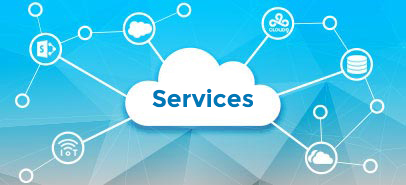The future of voice in changing healthcare Industry
Voice technology is well on its way to changing the healthcare industry due to its super convenient interface and early adoption of users in the field. Let’s understand what all the possible use cases are where big giants in medicine and other domains have been leveraging this exciting future of voice technology.
The adoption trend is going both ways. At one end, where more and more patients are finding it easier to use voice-activated devices such as Microsoft’s Cortana, Amazon’s Alexa, and Google Home, many hospitals and health systems are also developing voice-activated tools for patients. We can definitively say that users are really making this a successful attempt.
On the other end, technology experts are also leaving no stone unturned. They are constantly working on improving the quality of voice recognition software. Other than this, developers are also busy finding creative voice technology solutions to help people manage their medical conditions, whether acute or chronic.
We can surely call it a win-win situation for patients, clinicians, and technology experts. Improvements in speech recognition technology and decreasing device prices present exciting opportunities for medical organizations. As voice technology grows more sophisticated, patients can engage with their health at home through voice-assisted IoT.
Voice assistants are becoming a part of procedure rooms. What are the benefits to doctors?
We can call it a boon that voice is a touchless interface and that makes it super easy to integrate into a sterile environment like an operating or procedure room.
Technology experts have achieved a great deal of success while integrating voice assistants like Alexa, Google Home, or Cortana to Electronic Health Records (EHRs) of the hospitals. So surgeons can easily pull up past records of patients they will be operating on to get a better understanding of how they are going to respond to the procedure.
Doctors can talk to each other using headset mics which are integrated with voice assistants. When they speak into their headsets, the message is transmitted to voice assistants which, in turn, pull up the required report, information, or anything else and show it on the big screen in the operating or procedure room.
Voice Assistants are crucial in recording and updating EHRs. How?
Advances in AI, Machine Learning, Big Data, and Cloud Computing are helping to drive the implementation of voice technologies in updating healthcare records. Accurate speech-to-text programs have shown the ability to transcribe physicians’ notes more accurately than the average human medical transcriptionist, and voice recognition models offer a method for reducing common issues like illegible handwriting and insufficient documentation of procedures.
Another important role that voice assistant can play in operating rooms or even in any physician’s room is capturing clinical notes. This helps doctors save a lot of time writing prescriptions or recording complete medical histories of any patients suffering from chronic diseases and focus on their patients rather than their EMRs.
Role in Forecasting Wait Times in Emergency Rooms
Hospitals and nursing homes are also experimenting with building skills for Alexa and Google Home which can help patients identify wait times at emergency rooms and urgent care centers that are near a given zip code.
You can ask Alexa for the shortest wait time near your zip code or check the time at a specific location. The skill will give you the wait time as well as the address for that location or direct you to an alternative if the shortest wait time is elsewhere. This gives patients immediate access to emergency rooms and urgent care centers.
Voice Technology’s Inevitable Use in Recovery Rooms
Voice assistants have become an inevitable part of the patient recovery system. Whether it’s staying in a hospital room, or after discharging a patient to recover at home, voice interfaces help patients connect into their environment, especially when they have restricted mobility. Beginning with simple tasks such as dimming lights, adjusting the temperature of a room, and controlling volume levels, voice can empower users to maintain control of their environment. Moving to more integrated options, voice can also order food, request nursing assistance, or find out more about your medical condition from trusted sources using various health apps.
Devices such as Alexa are also well-suited to help people manage their chronic conditions. By asking simple questions such as “have you taken your medication today?” Alexa and other platforms can help ensure that patients remain compliant with their treatment needs. This is critically important, as some studies have shown up to 50 percent of patients do not comply with their dosing schedule, a problem that has massive public health consequences.
Future of Voice Technology and Assistants
As vocal recognition technology continues to mature and become more widely adopted, the level of acceptability and adoption in the Healthcare industry is surely going to increase. Medical organizations already have tech teams busy building pilot programs that use devices like the Amazon Echo to provide post-discharge information for patients, answer common health questions, and manage basic needs like transportation and medication schedules.
Voice recognition is also likely to take on a more expanded role in the daily routines of healthcare providers, potentially making the laborious human transcription process and paper-based records outdated as speech recognition becomes even more exact and reliable.
Though security, trust, and the adoption rate is a common challenge, vocal recognition is still the future of healthcare. The help these smart speakers adorned with Artificial Intelligence can provide in emergency and operating rooms to patients and doctors alike are monumental. Widespread adoption could slash operating costs and save time, allowing doctors to see more patients and focus on delivering high-quality care.












